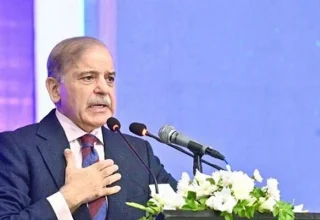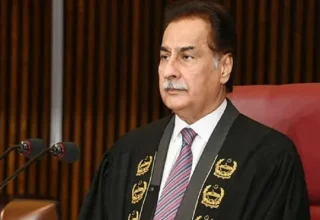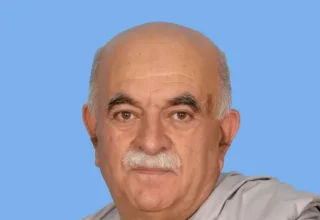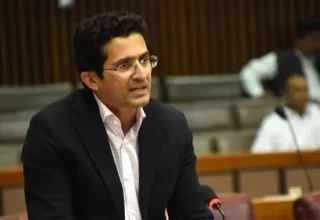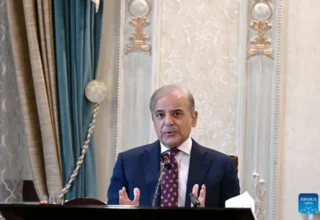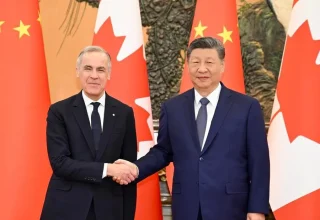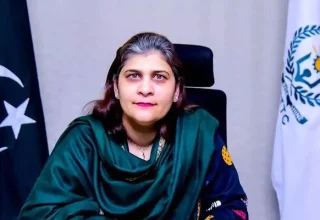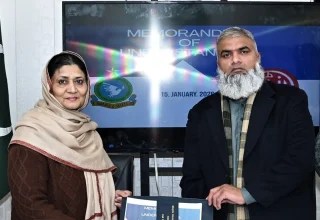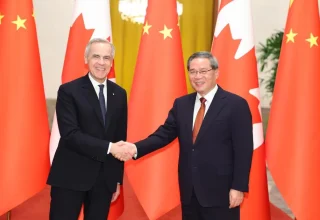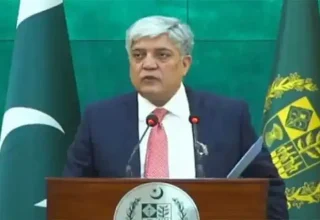
The Ministry of Foreign Affairs, in its weekly briefing on Friday, expressed deep concern over recent aggression by Afghan Taliban forces and their affiliated groups along the Pakistan–Afghanistan border.
According to the official statement, Pakistan described the actions by “the Afghan Taliban, Fitna-al-Khawarij, and Fitna-al-Hindustan” as unprovoked attempts to destabilize the border region on the nights of 11–12 and 14–15 October 2025. The Foreign Office said these assaults contradict the spirit of peaceful coexistence between neighboring countries.
Foreign Office Spokesperson Shafqat Ali Khan said that Pakistan exercised its right to self-defense, repelling the attacks and inflicting significant losses on Taliban forces and associated terrorist groups operating from Afghan soil. He emphasized that Pakistan’s defensive actions were precise and did not target civilians.
At the Taliban regime’s request, both sides agreed to a 48-hour ceasefire beginning at 6 p.m. on October 15 to facilitate dialogue. The ministry reaffirmed Pakistan’s desire for peace, stability, and constructive engagement with Afghanistan but warned that Islamabad would take all necessary measures to defend its territory and citizens.
Khan also rejected remarks made by Afghanistan’s Acting Foreign Minister in India, calling them an attempt to divert attention from the presence of terrorist elements inside Afghanistan. Pakistan urged the Taliban regime to honor its international commitments and prevent the use of Afghan soil for terrorism against other countries.
He reiterated Pakistan’s concern about the activities of Fitna-al-Khawarij and Fitna-al-Hindustan from Afghan territory and demanded “concrete and verifiable” action against these groups. The statement noted that Pakistan had hosted millions of Afghan nationals for over four decades but would continue regulating their presence under domestic and international laws.
On the India–Afghanistan Joint Statement issued in New Delhi on October 10, Islamabad conveyed its reservations to the Afghan ambassador, condemning references to Jammu and Kashmir as part of India. The ministry said the reference violated UN Security Council resolutions and ignored the sacrifices of the people of Indian Illegally Occupied Jammu and Kashmir.
Khan dismissed Afghan claims that terrorism was “Pakistan’s internal problem,” emphasizing that Islamabad had repeatedly shared credible evidence of cross-border militant activities supported from within Afghanistan.
The briefing also noted that on October 14, Foreign Secretary Amna Baloch briefed ambassadors in Islamabad on Pakistan’s security concerns and its unwavering resolve to protect its sovereignty.
Pakistan advised the Taliban regime to refrain from commenting on Pakistan’s internal affairs, stressing the principle of non-interference in accordance with international diplomatic norms.
The Foreign Office detailed Prime Minister Shehbaz Sharif’s visit to Sharm El Sheikh from October 13–14 at the joint invitation of Egypt’s President Abdel Fattah El-Sisi and U.S. President Donald Trump to attend the Gaza Peace Summit.
The Prime Minister, accompanied by Deputy Prime Minister and Foreign Minister Senator Ishaq Dar, participated in high-level discussions addressing the humanitarian and security crisis in Gaza. Leaders from over 30 countries, including the UK, Germany, Turkiye, Qatar, Indonesia, and Canada, attended the summit.
Breaking from protocol, President Trump invited Prime Minister Shehbaz Sharif to speak at the signing ceremony. The Prime Minister thanked Trump for his leadership in facilitating peace efforts, especially for halting conflicts in Gaza and between India and Pakistan.
During the summit, the Prime Minister held bilateral meetings with Palestinian President Mahmoud Abbas, King of Bahrain Sheikh Hamad bin Isa Al Khalifa, U.S. President Donald Trump, Azerbaijani President Ilham Aliyev, and Armenian Prime Minister Nikol Pashinyan.
On his return, the Prime Minister reaffirmed Pakistan’s commitment to the Palestinian cause, calling for an end to the “genocidal campaign” in Gaza and the establishment of an independent Palestinian state with Al-Quds Al-Sharif as its capital.
On October 14, Pakistan was elected to the United Nations Human Rights Council (HRC) for a three-year term starting January 2026, securing 178 votes—a resounding majority. This marks the sixth time Pakistan has been elected to the Council since its creation in 2006.
The Foreign Office said the election reflects international confidence in Pakistan’s commitment to promoting human rights and its reputation as a consensus-builder at the UN.
During its upcoming term, Pakistan will continue advocating for civil, political, economic, and cultural rights, and draw global attention to human rights violations in Indian Illegally Occupied Jammu and Kashmir (IIOJK) and Occupied Palestine.
Deputy Prime Minister and Foreign Minister Ishaq Dar received a call from EU High Representative Kaja Kallas on Friday. Both sides appreciated the positive momentum in Pakistan–EU relations and expressed anticipation for the upcoming Pakistan–EU Strategic Dialogue in Brussels in November.
They also discussed key regional and global developments, reaffirming their commitment to continued engagement in both bilateral and multilateral forums.


